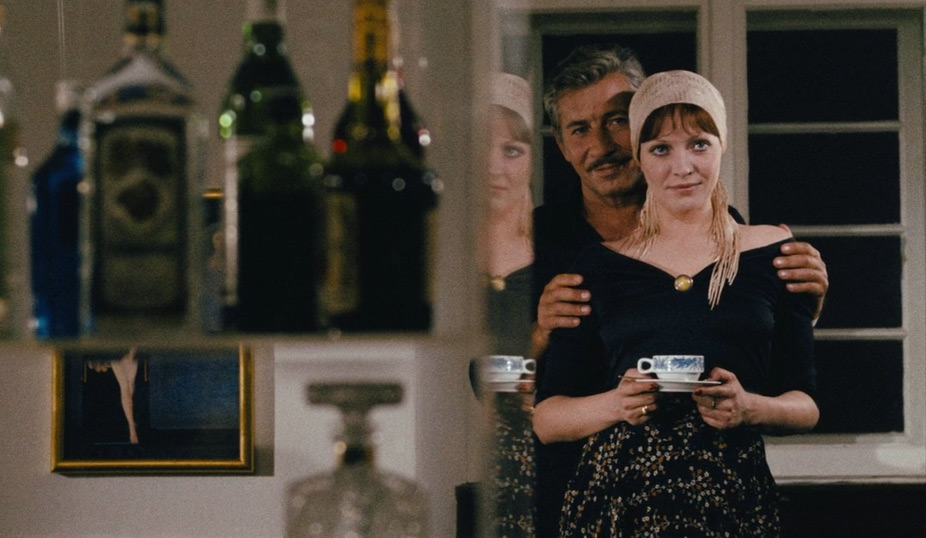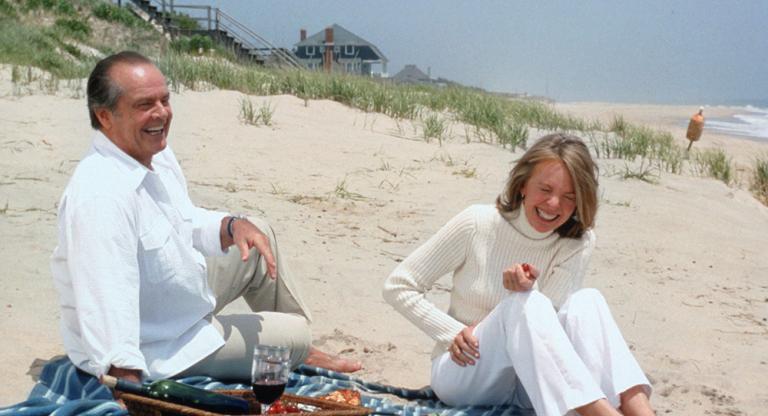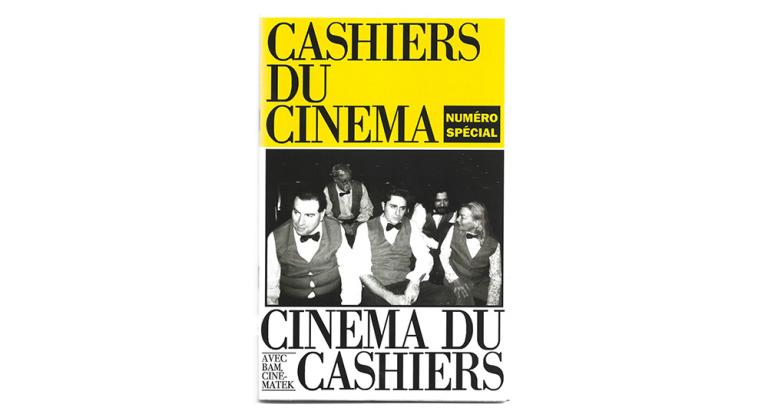In a minor variation to the unpredictably fatal game of Russian roulette, Rainer Werner Fassbinder exchanges a gun for words in his sinister family drama Chinese Roulette (1976). Revolving around a precocious daughter with a disability implied to be the cause of her parents’ respective affairs, a “family,” along with all their involved parties, spends an unexpected weekend in an isolated country mansion. Tensions evolve claustrophobically as the daughter is blamed for the broken trysts; she returns their spite by drawing the group into a fateful truth-telling game of Chinese roulette. Often overlooked and rarely mentioned among Fassbinder’s staggering ‘70s output, the film marks his first international co-production and a deal that made him the highest-paid German director at the time. Featuring his company regulars, the nacreous Margit Carstensen and the hovering Brigitte Mira, the cast also includes the French New Wave stars Anna Karina and Macha Meril.
As is often the case with Fassbinder, Chinese Roulette makes light of routine humiliation and physical and spiritual discomfort, delivering one of the most horrifying mother-daughter relationships put to screen. From the opening scene where Angela, the daughter, stares at her mother across the room while she gazes at herself in the mirror, the vanity that divides them only deepens as the film goes on. Degrees of conceit are suffused throughout the melodramatic and anti-bourgeois premise as the adults’ affairs are simultaneously exposed and welcomed by one another. The expected unpleasantness is masked however by an elegance that is grounded in theater. Abetted by the cinematographer Michael Ballhaus (Martha, The Bitter Tears of Petra von Kant), his trademark tracking shots and candelabra lighting warmly offer a detachment. In particular, the dazzling circular shots around the adults in the parlor, as they laugh off their situation, absolve the title and the film as an entertaining, baroque exercise.
“Eavesdroppers often hear false truths,” Angela notes, as she observes the housekeeper’s son listening outside her mother’s room. A young child is rarely a main character in Fassbinder’s films. Individuals are subject to similar confrontations regardless of age. With the film teetering between the realistic and excessively offensive by way of its heightened ridiculousness, it serves best as a third or fourth date with Fassbinder.
Chinese Roulette screens this evening, September 27, and on September 28 and October 1, at Metrograph on 35mm as part of the series “Every Man for Himself and God Against All.”



